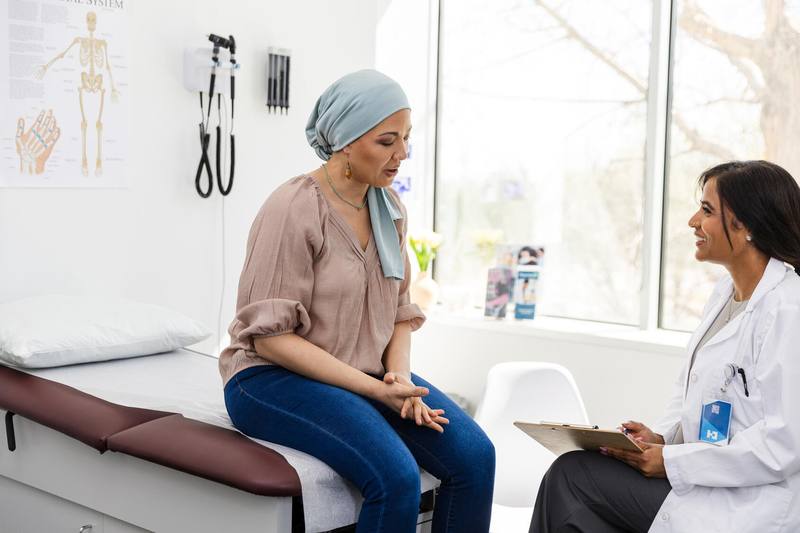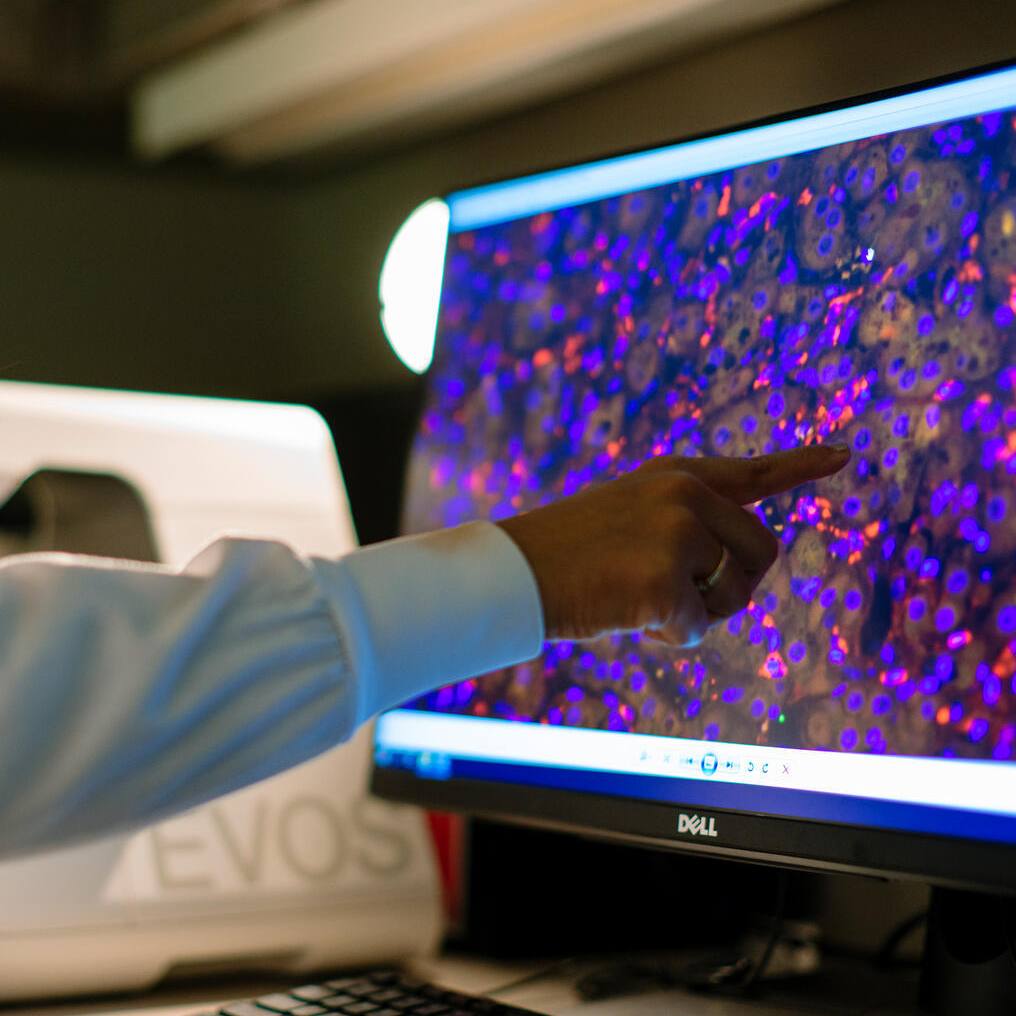-
The magic of the microbiome: new Mayo researcher looks for ways to promote health, prevent disease

“Don’t miss seeing the forest by focusing only on the trees,” explains Jaeyun Sung, Ph.D., a systems biologist who recently joined the Microbiome Program within Mayo Clinic Center for Individualized Medicine. That is Dr. Sung’s approach to exploring how the microbiome – the tens of trillions of microbes within and on our bodies – affects health and disease.
“I focus on the community of bacteria, not just individual microbes, along with genetic and environmental factors, such as the foods we eat, to understand what is taking place inside this complex system in our bodies. Watching how groups of microbes interact with each other – that’s where the magic happens. This is important because we know that changes in the microbiome definitely affect our digestive health and immune system, and possibly even our mood and behavior. It has also been linked to many diseases, such as diabetes, obesity, irritable bowel syndrome and colon cancer,” says Dr. Sung.
The ultimate goal – manipulating the microbiome with natural treatments
According to Dr. Sung, his ultimate goal is to develop probiotic treatments and individualized diets, tailored to a patient’s unique gut microbiome characteristics, to alleviate disease symptoms and improve overall health.
“Hippocrates, the father of medicine, said ‘Let thy food be thy medicine and thy medicine be thy food.’ I believe that we will eventually be able to use customized diets and probiotic ‘cocktails’ to naturally manipulate a person’s microbiome and potentially reverse disease and improve health without using potentially toxic pharmaceutical medications,” says Dr. Sung.
His current work in the Microbiome Program focuses on three areas:
- Building a mathematical model to find better diagnostic tests and treatments: Using computational data analysis tools, Dr. Sung is using patient data to create individualized models of gut microbiome ecology. These models will be used to predict how changes in microbes will affect the bacterial community and whether the changes may promote good health or cause disease. Dr. Sung plans to use these models to develop better diagnostic tests and treatments for any condition linked to the microbiome.
- Creating a biomarker panel to diagnose disease earlier: Dr. Sung is working to develop a screening test that uses patients’ stool samples to detect changes in their gut bacteria that are linked to a particular disease. This type of screening test may be able to diagnose conditions like colon cancer earlier, even before a patient experiences symptoms.
- Exploring new ways to prevent and treat childhood obesity: In collaboration with clinical researchers, Dr. Sung is trying to identify what factors lead to the development of childhood obesity, such as genetics, education background, cultural background, childhood trauma, breast fed versus formula fed infants, and infant and toddler microbiome characteristics. By understanding the underlying factors that cause childhood obesity, Dr. Sung and his team hope to develop new treatments and interventions for the condition.
From chemical reactions to gut reactions that impact health
Dr. Sung’s training as a chemical engineer set the foundation for his approach to studying the microbiome.
“As a chemical engineer, I am trained to design and run an entire chemical plant, managing all the chemical reactions and manufacturing processes to make raw natural resources into chemical commodities. As a systems biologist, I am now exploring gut reactions and the role of all biological processes simultaneously taking place in our body’s microbiome. If we can understand and manipulate how our bacterial communities function, we can make real strides in controlling disease and improving gut wellness,” says Dr. Sung.
While fascinated by the scientific aspects of his research, Dr. Sung is especially motivated by the patients he hopes to help with his work.
“From a scientific perspective, I enjoy collaborating with my Mayo colleagues, each with different backgrounds and views on science, to further unlock the mysteries of the microbiome. From a humanitarian perspective, I have the opportunity to participate in research that focuses on changing someone’s life for the better. This thought motivates me every day,” says Dr. Sung.
Learn more about microbiome research at Mayo Clinic
- Mayo Clinic Center for Individualized Medicine Microbiome Program
- Exploring the link between the gut and multiple sclerosis
- Study: are food and antibiotics linked to irritable bowel syndrome?
- Vaginal microbes point toward early detection and screening for endometrial cancer
- Probiotics and diet: learning the facts about gut health
- This diet’s for you: personalized nutrition to improve your health
Hear experts in microbiome research and precision medicine
This year’s Individualizing Medicine Conference will feature two distinguished experts in the human microbiome: Rob Knight, Ph.D., and David Relman, M.D., who will share their compelling research at the conference on Oct. 9-10 in Rochester, Minnesota. Mayo Clinic Center for Individualized Medicine is hosting the sixth annual conference with support from the Jackson Family Foundation.
- Register today via the conference website.
- See the schedule.
- Review the list of speakers.
Follow the latest news related to the conference on the Center for Individualized Medicine blog, Facebook, LinkedIn or Twitter at @MayoClinicCIM and use the hashtag #CIMCon17.








